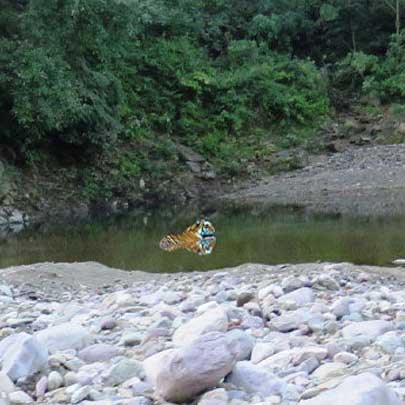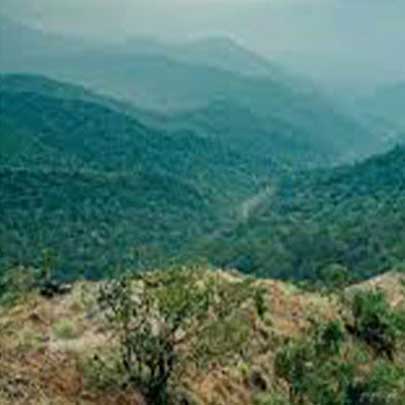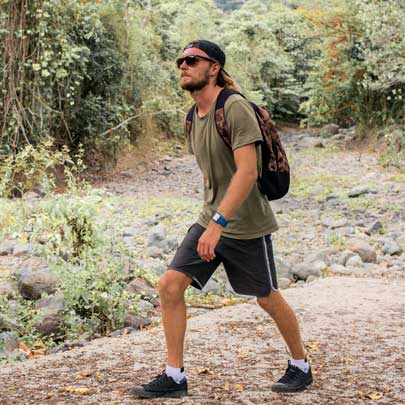Eco-tourism: How It Is Redefining Responsible Travel
Eco-tourism: How It Is Redefining
Responsible Travel
Travel is no longer just about seeing new places — it’s about experiencing them in ways that are sustainable, respectful, and beneficial both for nature and for local communities. Eco-tourism (or ecotourism) is at the heart of this shift. As more travellers search for sustainable tourism, green travel experiences, wildlife conservation tours, and eco-lodges near me, organizations like Wildlense and its sanctuary property Wildlense Wild Retreat are leading the way in redefining what responsible travel truly means.
What Is Eco-tourism?
Eco-tourism is a style of travel that focuses on conservation, environmental protection, cultural respect, and sustainable practices. Its core principles include:
-
Minimizing negative impacts on the environment and wildlife
-
Conserving natural ecosystems and biodiversity
-
Respecting local cultures and traditions
-
Providing economic benefits for local communities
-
Creating awareness among tourists about ecological issues
Far from being just a trend, eco-tourism is a response to global concerns about climate change, biodiversity loss, and the erosion of indigenous knowledge. When done well, it connects travellers with nature, supports conservation goals, and uplifts local communities.
Why Responsible Travel Is Becoming the Norm

Travellers today are increasingly conscious of how their journeys affect the planet and its people. Some key shifts include:
-
Sustainable accommodations: Demand for eco-resorts, green cabins, and low-carbon stays is rising.
-
Wildlife and nature experiences: People want jungle stays, birdwatching trips, and guided nature walks that don’t harm the environment.
-
Authenticity: Travellers prefer immersive experiences over cookie-cutter tours — learning, interacting, and leaving a positive footprint.
-
Transparency: Tourists now expect clarity on how operators protect land, wildlife, and communities.
Wildlense & Wildlense Wild Retreat: A Case Study in Responsible Travel

To understand eco-tourism in action, look at Wildlense Eco Foundation and its property Wildlense Wild Retreat in Pilibhit, Uttar Pradesh. They combine conservation, hospitality, and community empowerment.
Who They Are
-
Wildlense Eco Foundation is a non-governmental organization dedicated to wildlife conservation, environmental education, and supporting local tribal communities.
-
Wildlense Wild Retreat is their eco-friendly stay nestled in the Pilibhit wilderness near the famous tiger reserve.
What Makes Wildlense Wild Retreat Special
Eco-friendly Infrastructure
The retreat’s cottages are built with sensitivity to the forest, blending comfort with panoramic jungle views. Designs minimize environmental impact while offering modern amenities like purified water, proper sanitation, and sustainable furnishings.
Sustainable Food Practices

An organic farm on the property supplies seasonal fruits and vegetables, connecting guests to the source of their meals and lowering food miles. The on-site restaurant serves fresh, farm-to-table dishes prepared from local produce.
Wildlife Conservation & Nature Immersion
Being close to Pilibhit Tiger Reserve allows guests to join guided safaris, birdwatching walks, and biodiversity workshops. Naturalists educate visitors about flora, fauna, and how to enjoy the forest responsibly.
Comfort with Authenticity
Rooms balance earthy aesthetics and modern convenience — from temperature-regulating curtains to spaces designed for natural light and ventilation. Yoga, meditation, bonfire evenings, and family-friendly games make the stay rejuvenating yet mindful.
Community Engagement
Wildlense works with nearby tribal communities, helping them earn sustainable livelihoods through farming, handicrafts, and eco-tourism services. Guests can also purchase eco-friendly local products such as plantable stationery and artisanal goods.
Low-impact Travel Philosophy
The retreat encourages slow, mindful travel: reducing waste, conserving water and energy, and avoiding mass-tourism crowds.
How Eco-tourism Benefits Everyone
When responsible travel is practiced, the advantages are wide-ranging:
-
Environmental gains: Protected habitats, less pollution, and support for endangered species.
-
Economic empowerment: Jobs, skills training, and fair income for local residents.
-
Cultural preservation: Traditional arts, stories, and ecological knowledge stay alive.
-
Traveller well-being: Nature-rich stays lower stress and encourage meaningful connections.
-
Advocacy and awareness: Visitors become champions for conservation and sustainability.
Challenges and Solutions
Eco-tourism has hurdles, but innovative operators address them thoughtfully:
| Challenge | Solution |
|---|---|
| High cost of green infrastructure | Gradual investment, using local materials, tapping government support |
| Guest comfort vs. environmental limits | Smart design (e.g., natural ventilation, temperature-regulating curtains) |
| Genuine community participation | Shared decision-making, fair revenue, skills training |
| Wildlife disturbance from tourists | Small group sizes, guided tours, strict codes of conduct |
| Educating visitors | Signage, naturalist talks, materials on responsible behaviour |
Emerging Eco-tourism Trends

-
Growing demand for eco-resorts in India, especially near biodiversity hotspots
-
Interest in wellness and nature retreats, jungle stays, and carbon-neutral getaways
-
Government initiatives encouraging sustainable tourism and community-based projects
-
Increased focus on certifications, eco-credentials, and transparency
-
Rising searches like best wildlife safari tours in India, eco-friendly stay near tiger reserve, sustainable wildlife resort Uttar Pradesh
Tips for Travelling Responsibly
-
Pick eco-lodges or resorts with proven conservation and sustainability credentials.
-
Support destinations that employ local people and source materials locally.
-
Carry reusable bottles and bags; avoid single-use plastics.
-
Stay on marked trails, respect wildlife, and avoid loud noises.
-
Learn about local customs, participate in cultural experiences respectfully.
-
Travel slowly: spend more time in fewer places to cut transport emissions.
-
Offset your carbon footprint when possible.
What a Stay at Wildlense Wild Retreat Looks Like

Imagine arriving at a peaceful forest clearing near Pilibhit Tiger Reserve. You settle into a rustic-yet-comfortable cottage overlooking trees and meadows.
Mornings begin with bird calls and a healthy breakfast made from produce grown on the retreat’s organic farm. Later, you join a naturalist-led safari, spotting deer, exotic birds, and maybe a tiger from a respectful distance.
Afternoons are for unwinding — a dip in the pool, a yoga session, or time spent sketching the landscape. Evenings bring bonfires, star-gazing, and wholesome meals under the open sky. Your visit supports conservation and uplifts the region’s tribal communities.
Conclusion: Eco-tourism as a Path to Responsible Travel
Eco-tourism is transforming how people explore the world. It’s not just about destinations, but about choices — how we get there, how we stay, and how our presence affects ecosystems and communities.
Wildlense Eco Foundation and Wildlense Wild Retreat show that it’s possible to combine comfort, conservation, and cultural respect. For travellers looking to connect deeply with nature and leave a positive impact, eco-tourism isn’t just an option; it’s the future of travel.












































































